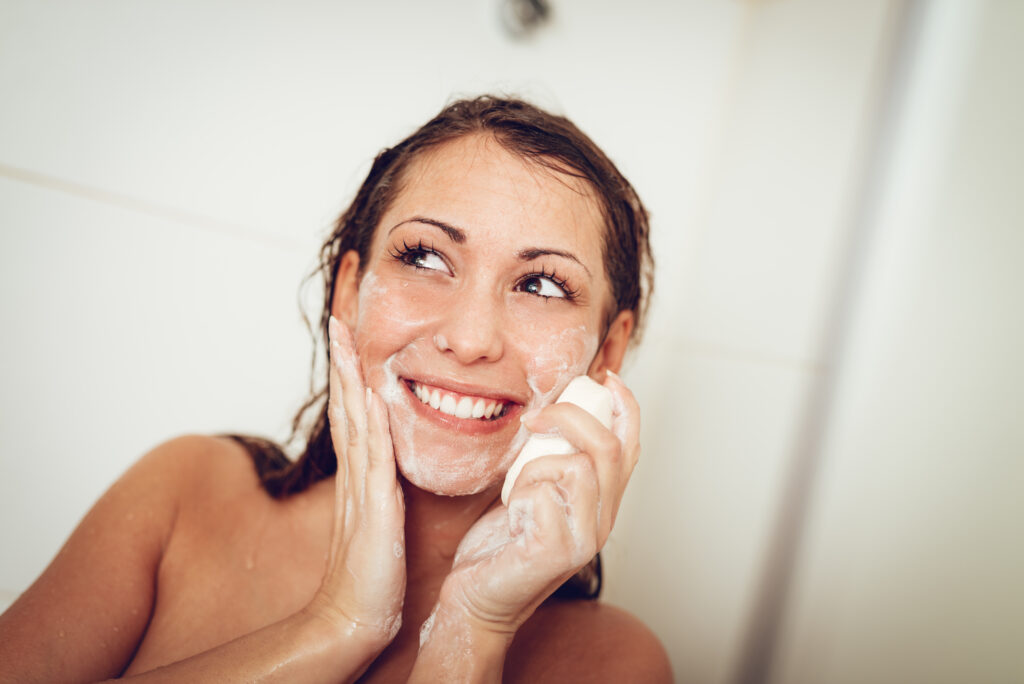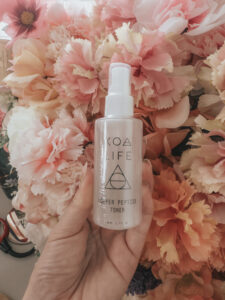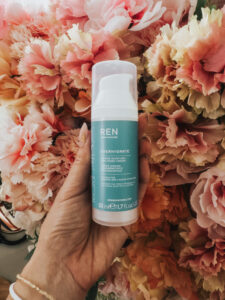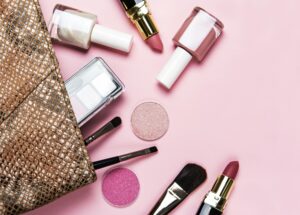Washing your face is an essential part of any skincare routine. But should you wash your face in the morning or at night?

Why Wash Your Face in the Morning?
Here are some reasons why washing your face in the morning can be beneficial:
- Remove excess oil and dirt that accumulated overnight
As you sleep, your skin continues to produce oil and sweat. Dead skin cells and environmental pollutants also accumulate on your skin overnight. Washing your face when you wake up removes all this excess oil, dirt, dead skin cells, and pollutants from your skin, leaving it fresh and clean for the day ahead.
- Prevent breakouts
Leaving excess oil, dirt, and dead skin cells on your skin can clog your pores and lead to breakouts. By washing your face in the morning, you wash away all these acne-causing impurities and keep breakouts at bay.
- Prep your skin for skincare products
Washing your face in the morning prepares your skin for absorbing skincare products like serums, moisturizers, and sunscreens. Applying these products on dirt, oil, and debris-covered skin reduces their effectiveness. Always start your morning skincare routine with a face wash.
- Wake yourself up
There’s nothing like a splash of water on your face to help you feel refreshed and energized first thing in the morning. Washing your face is an invigorating start to the day.
- Look fresh and feel confident
Walking around with oily, dull, or dirty-looking skin isn’t ideal. Washing your face in the morning helps you look awake and polished. Nothing boosts your confidence like starting the day with a glowing, clean face.

Why Wash Your Face at Night?
Here are some benefits of washing your face before bed instead of in the morning:
- Remove makeup, sunscreen, and pollutants from the day
During the day, your skin accumulates makeup, sunscreen, and environmental pollutants. Not removing these before bed can lead to clogged pores, irritation, breakouts, and premature aging. Always wash your face at night to remove the day’s gunk from your skin.
- Remove excess oil and dirt accumulated during the day
Like overnight, your skin continues producing oil and sweat during the day. Dirt also accumulates on your face over the course of the day. A nighttime face wash gets rid of this excess oil and dirt.
- Prevent breakouts
All the makeup, sunscreen, oil, dirt, and pollutants that accumulate on your skin during the day can clog pores and cause breakouts. Washing your face at night prevents this by removing these acne-causing impurities.
- Allow skincare products to work overnight
After cleansing at night, your skin is clean, fresh, and ready to absorb night serums, creams, and masks. These overnight skincare products can work more effectively when applied to cleansed skin.
- Remove lingering makeup for clean bedding
Any makeup still left on your skin can stain your bedding as you sleep. This speeds up the need to clean your sheets and pillowcases. Removing makeup properly with a face wash prevents stains.
- Give your skin a break from products
Your skin needs a break from skincare products to function at its best. Washing off all products before bed gives your skin a chance to renew and reset overnight.
Should You Wash Your Face in the Morning or at Night?
So should you cleanse your face in the AM or PM routine? The answer is you should wash your face both in the morning and at night.
Here are some guidelines on when to wash your face:
- In the morning, washing your face is crucial to remove oil, dirt, dead skin cells, and pollutants that accumulated overnight and prep your skin for the day ahead. Make it the first step of your AM skincare regimen.
- Double cleansing at night is key. The first cleanse removes makeup, sunscreen, and pollutants. Your skin needs a second cleanse to wash away excess oil, sweat, dirt, and debris that built up during the day.
- On heavy makeup days, do an additional evening cleanse to remove all traces of makeup thoroughly before starting the rest of your skincare routine.
- If you workout in the mornings, wash your face after your workout to wash away sweat, salt, chlorine, and dirt. Follow with your regular morning skincare routine.
- If you workout at night, cleanse your face after your workout and then cleanse a second time before bed as part of your PM skincare regimen.
- Listen to your skin. If washing your face twice a day leaves your skin feeling tight and dry, stick to only washing at night. Or vice versa if your skin feels too oily washing just at night. Adjust your face cleansing schedule according to your skin’s needs.
The key is to wash your face whenever it needs cleansing. For most people with normal and oily skin types, twice a day face washing is ideal – in both the morning and evening routines. For those with dry or sensitive skin, once a day cleansing may be sufficient.
How to Wash Your Face the Right Way
To get the full benefits of washing your face, you need to cleanse correctly. Here are some tips:
- Use lukewarm water to wash your face. Hot water can strip your skin while cold water will not effectively dissolve dirt and oil.
- Avoid harsh, drying cleansers. Look for a gentle, non-foaming cleanser without sulfates, parabens, fragrances, or alcohols.
- Massage the cleanser gently over damp skin for 30-60 seconds before rinsing off. Don’t aggressively scrub or rub.
- Rinse with lukewarm water until all traces of the cleanser are gone. Leaving any residue can irritate your skin.
- Pat dry your skin gently with a clean towel. Don’t aggressively rub your skin which can cause irritation.
- Follow with the rest of your skincare routine immediately while the skin is still damp. That helps the next products absorb better.
- Exfoliate 2-3 times a week either in morning or evening to slough off dead skin cells. But don’t exfoliate too harshly or frequently.
- Listen to your skin. If it feels tight, dry or irritated after cleansing, your face wash is too harsh. Switch to a more gentle cleanser.
- Use any acne-fighting ingredients like salicylic acid or benzoyl peroxide only at night. These can increase sun sensitivity during the day.
By cleansing your face gently but effectively twice a day, you’ll reap the skincare benefits of keeping your skin clean, clog-free, even-toned, and glowing! Make washing your face properly an essential part of your daily morning and nighttime routines.
Additional Tips for an Effective Face Cleansing Routine
Here are some additional tips to enhance the effectiveness of your daily face cleansing routine:
- Clean your hands before cleansing your face. Otherwise, you may transfer dirt and bacteria from your hands onto your face.
- Be gentle around the delicate eye area. Use a separate eye makeup remover if needed to avoid tugging delicate skin.
- Spend more time washing problem areas like the T-zone which tends to be oilier.
- Replace makeup brushes, sponges, and face towels regularly to prevent spreading dirt and bacteria.
- Shampoo your hair first if washing both hair and face at night. This prevents hair products from transferring to your face.
- Pat your face dry after cleansing instead of rubbing to reduce irritation and inflammation.
- Splash your face with cool water after cleansing to close pores, especially if you have oily/acne-prone skin.
- Examine your face after cleansing to check no residue remains. Rinse again if needed before applying other products.
- Have two clean towels – one for first cleansing step to remove makeup and a fresh one for second cleanse.
- Try rotating between a few different cleansers. Using the same one constantly can make it less effective over time.
- Look for foaming cleansers with journey restrictions if you’ll carry your face wash while traveling.
- Check that your cleanser doesn’t clash with your other skincare products to avoid inadvertent mixing.
- Store your face wash in a cool, dry place away from direct sunlight and humidity for longest shelf life.
Stick to a consistent and effective double cleansing routine each day, and you’ll notice the benefits of properly cleansing your face for yourself soon. Your skin will not only look cleaner but also brighter, smoother, more even-toned, and feel healthier.









